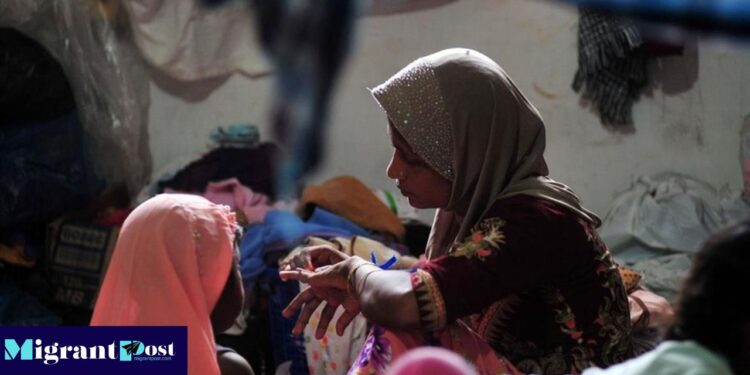Syed Golam Haider, MP Report – According to government figures, more than 300,000 female workers have travelled to Saudi Arabia since 1991, but many of them return with stories of abuse and exploitation. In the last four years, at least 66 Bangladeshi female workers died in Saudi Arabia, 52 of them committing suicide.
The issue of Bangladeshi domestic workers being sent to Saudi Arabia and facing physical, mental, and sexual abuse has been a growing concern in recent years. According to reports, many of these workers are subjected to harsh working conditions, long hours, and little pay. In extreme cases, some workers have even committed suicide due to the abuse they have faced.
One of the main problems that Bangladeshi domestic workers face in Saudi Arabia is the lack of legal protection. Many workers are brought into the country illegally, without proper documentation, making it difficult for them to seek legal recourse if they are mistreated. Additionally, the kafala system, which is a sponsorship system that ties the worker to their employer, further limits their ability to leave an abusive situation and seek help.
Another issue is the cultural differences between Bangladesh and Saudi Arabia. Many workers are not prepared for the strict cultural norms and expectations of their employers. They may not be familiar with the language, customs, or social codes of behavior, making it difficult for them to communicate effectively or understand what is expected of them. This can lead to misunderstandings and conflict, which can escalate into abuse.
Furthermore, the recruitment process for domestic workers in Bangladesh is often exploitative. Many workers are promised high paying jobs with good working conditions, only to find out that the reality is very different. They may be forced to work long hours without breaks, receive little pay, and face physical and emotional abuse.

To address these problems, there are several solutions that can be implemented. First, the recruitment process for domestic workers needs to be regulated. This can be done by setting up a system that ensures that workers are not exploited and are aware of the working conditions they will face in Saudi Arabia. Additionally, the Bangladeshi government can work with the Saudi Arabian government to provide legal protection for domestic workers and ensure that they are not subjected to abuse.
Second, cultural awareness training can be provided to workers before they leave for Saudi Arabia. This can help them understand the cultural norms and expectations of their employers, which can reduce the likelihood of misunderstandings and conflict.
Third, the kafala system needs to be reformed to ensure that workers are not tied to their employers and have the ability to leave abusive situations. This can be done by providing workers with more legal rights and protections, such as the ability to change employers or seek legal recourse if they are mistreated.
In conclusion, the abuse of Bangladeshi domestic workers in Saudi Arabia is a serious problem that requires immediate attention. The lack of legal protection for workers, cultural differences, and exploitative recruitment practices are all contributing factors. To address these issues, the Bangladeshi and Saudi Arabian governments, along with international organizations, must work together to provide legal protections, regulate the recruitment process, and reform the kafala system. Only then can the rights and safety of domestic workers be ensured.















